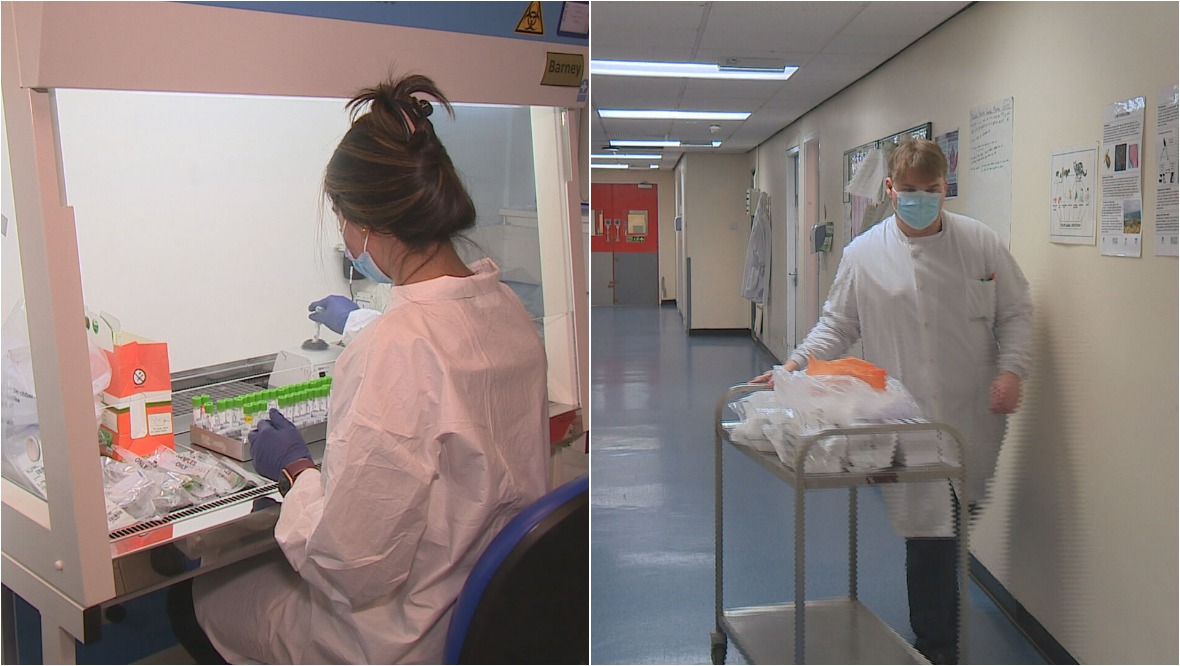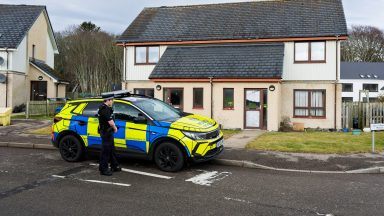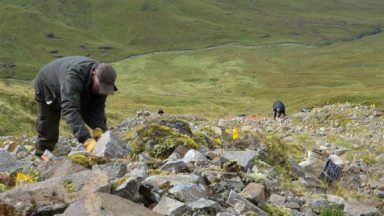Specialists at a Highland laboratory have helped shape Covid decision-making at national level.
A total of 90,000 tests were carried out at the facility at Raigmore Hospital in Inverness last year and one of their projects even led to the introduction of Scotland’s booster programme.
From the start of the pandemic, staff have gone from sending 35 samples a day for testing elsewhere to analysing 90,000 results last year in their department.
Already in 2022 they’ve carried out 7000 tests.
As the virus grew, spread and mutated into different waves, the team have had to learn as they go.
Senior biomedical scientist, Khadija Saleem, told STV News: “Any time we have got an outbreak in a nursing home you are seeing 70 to 80 samples just from residents and people that are working there.
“If one member of staff tests positive within one of the wards of the hospital, the whole ward is closed, they are all testing everyone. It’s a matter of 24 hours, 48 hours or 72 hours.”
The lab staff’s findings have a direct influence on decisions made elsewhere across the hospital – as well as nationally.
Dr David Ashburn, microbiology & immunology department manager, said: “We have got an initial admissions screening to make sure both the patient coming in is negative and they are taken to an area of the hospital with other negative patients.
“We are identifying patients and staff who have become infected and we use that information to manage the wards.”
Raigmore runs the Serology Surveilance programme for the whole of Scotland.
‘We were one of the very first people to notice that antibody levels were declining in the older age groups and that was why the Covid Booster programme was instigated; because we saw that happening.’
Director of reference labs, Sally Mavin
Every week 750 blood samples are analysed here from across the country to look for trends in antibody levels. And this work is what led to the county’s booster programme being developed.
The director of reference labs, Sally Mavin said: “Approximately 80% of the samples we are testing now have antibodies to Covid.
“There have been interesting trends as we have gone along we have been able to trace the antibody levels rising in the different age groups, because of vaccination or because of infection.
“The patients over 80 years old, the antibody levels rose to a peak and then they started to decline again.
“So we were one of the very first people to notice that antibody levels were declining in the older age groups and that was why the Covid Booster programme was instigated; because we saw that happening.”
The pressures of Covid have meant staff have had to work harder and for longer hours – but they hope that with Omicron seemingly starting to peak, there could at last be brighter days ahead.
Follow STV News on WhatsApp
Scan the QR code on your mobile device for all the latest news from around the country




























